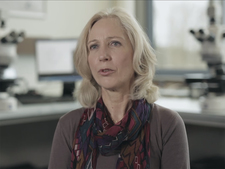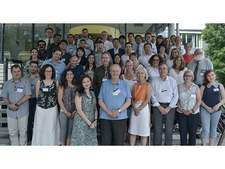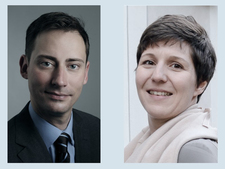-
Topics
subnavigation
Topics
Electromagnetic fields
- What are electromagnetic fields?
- Static and low-frequency fields
- Radiation protection relating to the expansion of the national grid
- High-frequency fields
- Radiation protection in mobile communication
Optical radiation
Ionising radiation
- What is ionising radiation?
- Radioactivity in the environment
- Applications in medicine
- Applications in daily life and in technology
- Effects
- What are the effects of radiation?
- Effects of selected radioactive materials
- Consequences of a radiation accident
- Cancer and leukaemia
- Genetic radiation effects
- Individual radiosensitivity
- Epidemiology of radiation-induced diseases
- Ionising radiation: positive effects?
- Risk estimation and assessment
- Radiation protection
- Nuclear accident management
- Service offers
-
The BfS
subnavigation
The BfS
- About us
- Science and research
- Laws and regulations
- BfS Topics in the Bundestag
- Links
BfS brings together international expertise on biological dosimetry

![]() Dr. Ulrike Kulka, head of the BfS section Biological Dosimetry
Dr. Ulrike Kulka, head of the BfS section Biological Dosimetry
The Federal Office for Radiation Protection (BfS) promotes an international network for individual dose estimates after a radiation accident. To be able to effectively estimate the potential individual radiation dose received by as many affected persons as possible in the event of a major radiation accident, the RENEB (Running the European Network of Biological and Physical Retrospective Dosimetry) network e.V was established in 2017 under the auspices of the BfS.
Dr. Ulrike Kulka, head of the BfS section Biological Dosimetry, was elected Chairwoman at the network's first general meeting held on June 10, 2018, in Neuherberg.
Biological dosimetry enables estimation of radiation doses received
After a large-scale radiation accident or a terrorist attack where radioactive material was used, a great number of persons may be exposed to ionising radiation. To provide affected persons with the best possible treatment, an individual dose reconstruction must be carried out. This is also necessary to identify persons who say they show radiation symptoms, possibly without having been exposed to a corresponding dose. Biological dosimetry plays an important role in this respect, in particular in the case of unclear radiation conditions or contradictory findings.
The basis for this is the recording of biological changes in the genetic material caused by ionising radiation, which can be verified e.g. as chromosomal changes in white corpuscles. By means of biological dosimetry the individual radiation dose can also be estimated in cases where it is no longer possible to measure the dose itself or in the event of contradictory information given.
Networking at the European level improves international emergency management

As the capacity of one single laboratory alone is not sufficient in the event of a large-scale radiation accident, the resources of adept laboratories in Europe are combined in the RENEB network. The altogether 26 organisations from 16 European states involved are prepared to assist each other in the event of a major radiation accident.
At the network's first general meeting a working focus for the next two years has been defined: Together, the partner laboratories want to clarify the fundamentals of dose estimation in the event of incidents involving neutron radiation. For this purpose, blood cells are irradiated with different doses of neutron radiation and the effects are recorded in so-called dose-effect curves. Apart from the RENEB partners, the Physikalisch-Technische Bundesanstalt in Braunschweig and the Columbia University New York (USA) take part in the project.
BfS organises further exchange among experts at the international level
Over 150 experts in the field of biological and retrospective physical dosimetry came together at further international meetings in Munich in June 2018.
 At the meeting of the WHO BioDoseNet, the BfS welcomed representatives of international authorities, universities and research institutions
At the meeting of the WHO BioDoseNet, the BfS welcomed representatives of international authorities, universities and research institutions
- Among others, one point of discussion at the EPR BioDose Conference, which was organ-ised by the BfS together with Helmholtz Zentrum München and the Federal Armed Forces Institut for Radiobiology, was the topic of biomarkers (characteristic biological features that can be used as reference for processes and diseases inside the body) in the biological and EPR (retrospective physical) dosimetry.
- At the WHO BioDoseNet meeting, representatives of international authorities, universities and research institutions came together to exchange experiences and push further developments in this area also in economically underdeveloped countries. As World Health Organisation (WHO) Collaboration Centre in the field of emergency management, the BfS organised the meeting.
State of 2018.07.03



